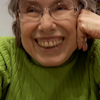
A Severe Traumatic Brain Injury
In December of 2008, Canadian widow Margaret Shenfeld ("Maggie") was out taking a walk near her condominium apartment in Toronto. Due to an undiagnosed onset of Parkinson's Disease, she lost her balance and took a hard fall, suffering a severe traumatic brain injury. She experienced the loss of her short-term memory and sense of direction; she also lost her ability to walk as well as she had been able to, and to think and speak as clearly. After she had spent five months in the hospital and rehab, her doctors informed her family that she was well enough to be released. To ensure her future safety, she could, however, only return home with the support of live-in care.

The Live-In Care Program
Maggie's family thus engaged Merly Lamery as a live-in caregiver (as well as other support staff), officially sponsoring her to work in Canada under the government's Live-In Care Program (LCP). Established in 1992, the LCP gives foreign nationals the opportunity to enter Canada and work legally as live-in care providers for children, seniors and the physically challenged. After working a government-set number of hours for a set minimum wage (roughly two years, full-time), caregivers are then able to apply for Permanent Resident Status. Upon obtaining it, they may remain in Canada and work at any job they wish. They may also then apply for citizenship. Caregivers who have come to Canada under the LCP program do not have to remain in the homes of the families who have sponsored them; depending upon their situation, they may, however, find it difficult to change employers even if they wish to do so. Statistics show that, between 1992 to 2009, 52,502 caregivers have come to Canada through the Live-In Care Program. Ninety per cent of those caregivers are Filipino women. (Thousands more have come since 2009.)

One of Thousands of Stories
The story of Maggie & Merly is one of thousands of stories, some heartening, some painful, being enacted across the country as Filipino women care for Canada's young, elderly, and disabled. It is also one of many more stories from around the world where Filipinas are also currently working as caregivers, especially in Hong Kong, Singapore, the United Arab Emirates, the United States, and Israel. Maggie & Merly helps to document a modern social and human geographical trend, as hundreds of thousands of Filipinas are forced, by economic circumstance, to leave their country, families, and communities.